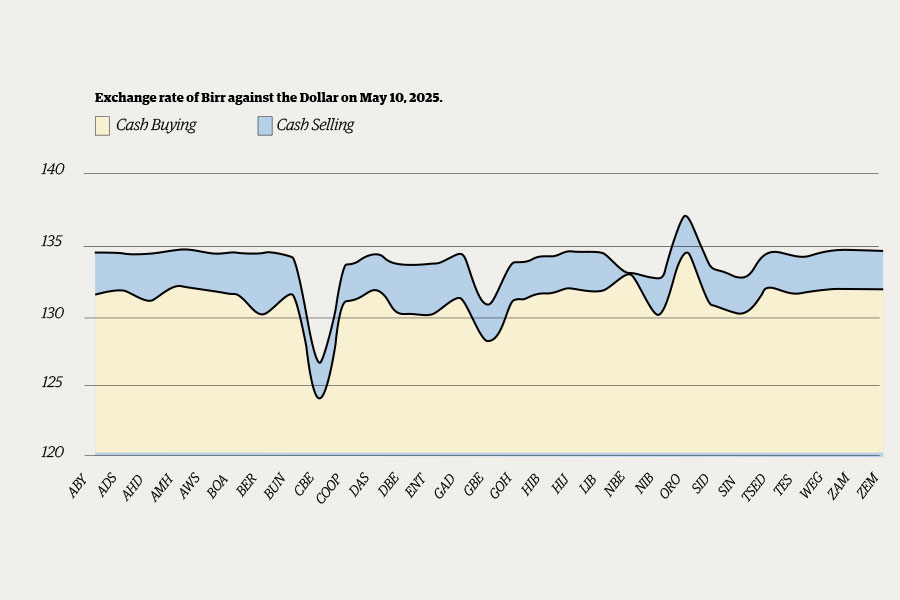
Money Market Watch | May 24,2025
The National Bank of Ethiopia (NBE) has removed fuel from the list of import items that will get first priority in foreign currency allocation. Now the central bank lists only pharmaceutical products under the first priority category.
Importers of medicine and laboratory reagents will be favored to receive foreign currency funding. At the same time, inputs for agriculture such as fertiliser, pesticides, chemicals, seeds and raw material for manufacturing industries fall under the second category. Profit, dividends and transfer of excess sales of foreign airlines, which had been under the second priority list, were pushed to the third category, which consists of lubricants, agricultural inputs, pharmaceutical products, machinery, baby formula and educational materials.
The new directive has arrived at a time when the nation's foreign currency reserve is depleted. As of March 31, 2020, the gross foreign reserve coverage stood at 1.6 months of imports of goods and services of the current fiscal year. This is down from the 2.4 months of coverage of the foreign currency reserve during the 2018/19 fiscal year.
Foreign currency is a scarce resource that should be carefully managed to ensure its efficient and proper allocation, according to the directive that was released by Yenehasab Tadesse, director of Foreign Exchange Monitoring & Reserve Management at the central bank.
“It’s necessary to require each bank to have transparent and sound foreign currency allocation and management guidelines,” reads the directive, which comes into effect as of October 5, 2020.
The directive requires the banks to apportion no less than 50pc of their total foreign currency allocations for these priority areas. Out of the total allocated value, items under the first priority will get 10pc, while goods and services under the second and the third categories will receive 45pc each.
Categorising items is good, but the category is not exhaustive, according to Habib Mohammed, a financial expert with over a decade of experience.
He also disagrees with the percentage allocation for priority allocations, explaining that banks might not receive requests for such items.
"If they don't have requests, the central bank compels them to surrender the forex that was allocated to some sectors," he said.
If the allocation for these priorities is less than half of a bank's total allocation, it is obliged to surrender the difference to the central bank within the first working days of the next month. In the case of allocated foreign currency for priority areas that goes unused, the bank has to surrender the difference to the NBE within the first five working days after June and December.
There is no way that approved forex cannot be utilised by importers, according to a senior executive at one of the mid-sized banks.
"Forex allocation and prioritisation of sectors is an effect of scarce foreign currency," he said.
A bank that fails to comply with the directive or breaks the rules will be fined 5,000 dollars for each violation, according to the new directive. The previous directive stated that offenders would be fined 10,000 Br for each violation.
"Making the fine in foreign currency isn't fair," commented the bank executive.
The directive has also given the power to the central bank's governor and the vice governor in charge of the Monetary Cluster to give special priority approval for financial institutions, federal and regional governments and City Administration requests. Bank presidents are also entitled to approve the import of spare parts for manufacturing and agricultural sectors in the case of damage to machinery that causes interruption to production.
This law in some way supports the manufacturing sector compared to the previous directive, according to Habib.
"It also allows importers in the manufacturing sector to get Cash Against Document financing (CAD) [where an importer pays for goods before receiving them]," he said.
Bank presidents can also give approvals to issue import permits for goods shipped before approval or after the expiry of letters of credit (LC) or purchase orders by giving a warning letter to the importer if the case is found acceptable.
A list of items that are exempted from the registration procedure are to be served on-demand. Foreign currency requests from non-resident foreign currency accounts; invisible payments such as consultancy and communications services; retention accounts; travel and salary allowances; suppliers’ credit and external debt repayment are among the areas included in the list.
Banks cannot approve of the LC application without collecting 30pc of the LC in cash upfront. Banks can be exempt for imports by the manufacturing sector from this restriction.
"This is commendable since it relaxes stringent rules in the previous laws," said the senior bank executive.
Importers cannot submit more than two pro forma invoices to a bank requesting foreign currency. Importers are also prohibited from lodging forex requests in one import application on more than one bank. Any importer who fails to comply with the directive will be blacklisted for six months to two years.
There are also a few limitations with the directive, according to Habib. It should have included exporters in the priority category, since obtaining the privilege may motivate them to bring in more forex.
"The penalty may also discourage banks," he said. "Banks can approve forex for customers that bring a higher value of forex in the hopes of encouraging them to bring more forex and retain their customers."
PUBLISHED ON
Oct 11,2020 [ VOL
21 , NO
1067]

Money Market Watch | May 24,2025

Commentaries | Mar 25,2023

Radar | Feb 05,2022
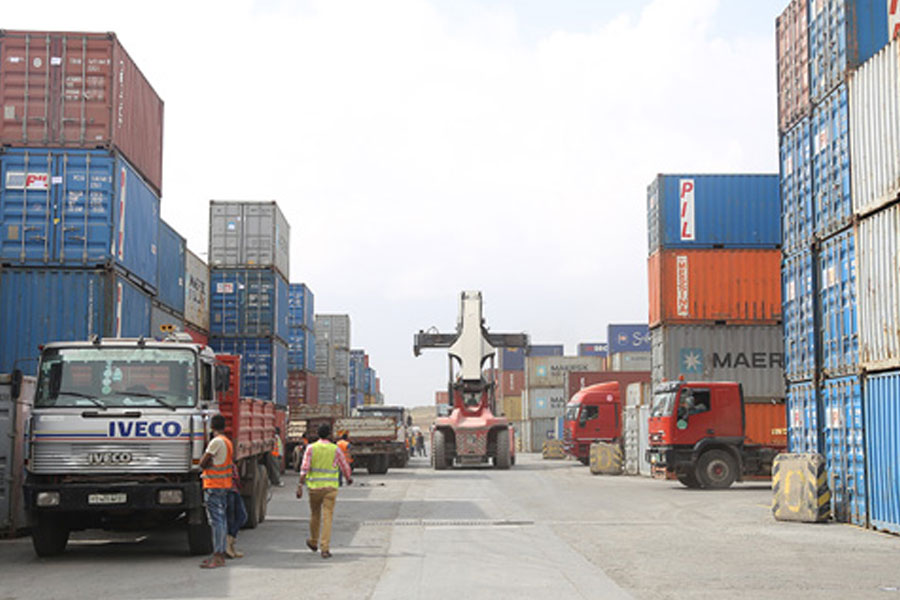
Fortune News | Dec 04,2021

Radar | Apr 03,2021

Fortune News | Mar 19,2022
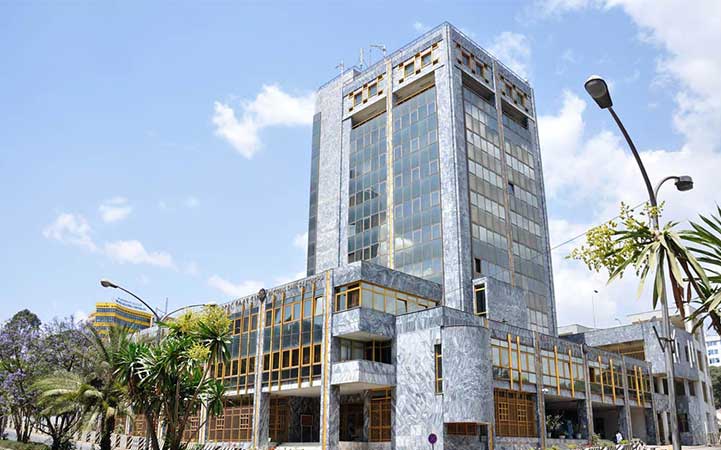
Fortune News | Aug 12,2021
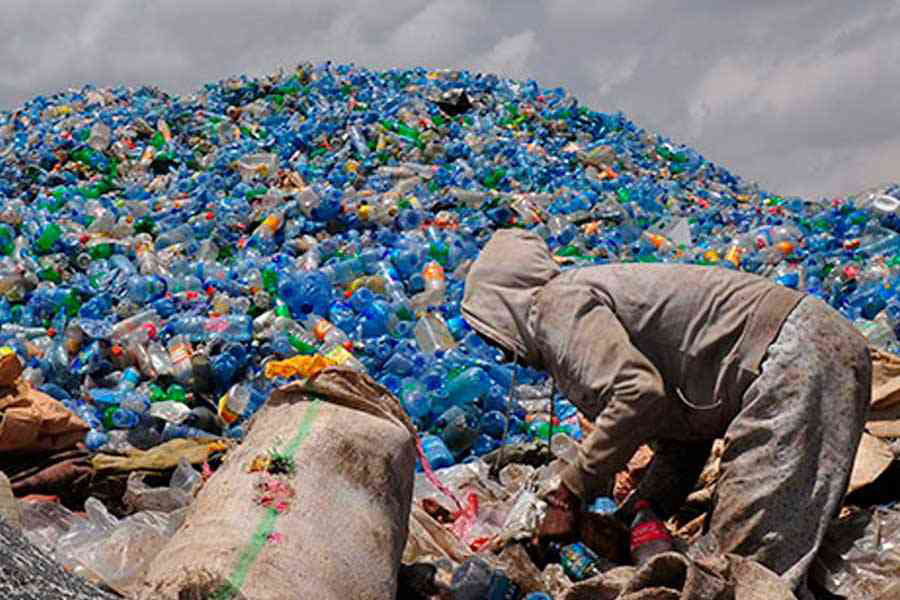
Fortune News | Mar 30,2024

Radar | Apr 08,2024
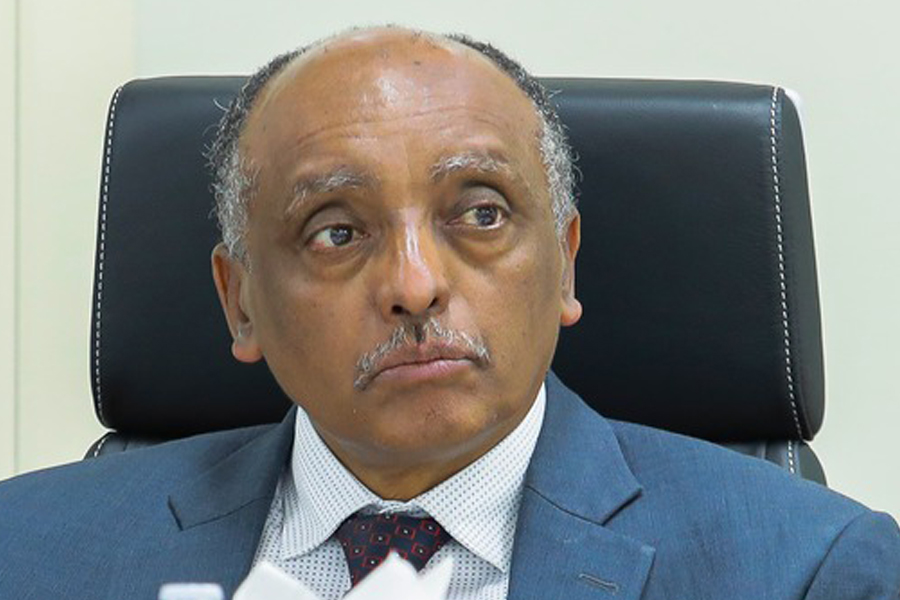
Fortune News | Sep 08,2024

Dec 22 , 2024 . By TIZITA SHEWAFERAW
Charged with transforming colossal state-owned enterprises into modern and competitiv...

Aug 18 , 2024 . By AKSAH ITALO
Although predictable Yonas Zerihun's job in the ride-hailing service is not immune to...

Jul 28 , 2024 . By TIZITA SHEWAFERAW
Unhabitual, perhaps too many, Samuel Gebreyohannes, 38, used to occasionally enjoy a couple of beers at breakfast. However, he recently swit...

Jul 13 , 2024 . By AKSAH ITALO
Investors who rely on tractors, trucks, and field vehicles for commuting, transporting commodities, and f...

Jul 5 , 2025
Six years ago, Ethiopia was the darling of international liberal commentators. A year...

Jun 28 , 2025
Meseret Damtie, the assertive auditor general, has never been shy about naming names...

Jun 21 , 2025
A well-worn adage says, “Budget is not destiny, but it is direction.” Examining t...

Jun 14 , 2025
Yet again, the Horn of Africa is bracing for trouble. A region already frayed by wars...